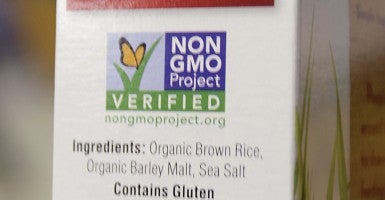MINNETRISTA, Minn. — Just when the backlash over First Lady Michelle Obama’s school lunch menu leveled off, students in a handful of Twin Cities schools got a taste of what could be another controversial food fad.
The main course? Non-GMO (genetically modified organisms) meals.
“Having the GMO awareness day for our district was to really show that whether you agree with consuming GMOs or not, consumers should have the right to make that choice,” said Laura Metzger, Westonka schools’ director of food and nutrition services.
The Hopkins, Minneapolis, Orono, Shakopee and Westonka school districts served up the issue in November to underscore society’s increasing reliance on plants, animals and organisms that are genetically modified to enhance food nutrition and production. Most processed foods in the United States contain ingredients such as GMO canola, corn, cotton, soy, sugar beets and other products.
As word spread, at least one critic in the agricultural press accused the schools of going too far under the headline “School is for factual learning, not anti-GMO rhetoric.”
“All the information I have read concludes that GMOs are safe for people to eat and in no way compromise human health,” wrote Cary Blake, editor of Farm Press Blog. “In general, non-GMO foods which include organically grown food can cost more. I was unaware that public schools in Minnesota have the extra funds to pay for non-GMO foods.”
Minnesota agriculture relies heavily on GMO-based crops, research and biotech companies that produce enormous benefits to the state economy.
The one-day educational event unfolded in the neighborhood of one of the world’s most powerful food distributors and proponents of GMO products — Cargill, headquartered in suburban Wayzata.
The choices at Orono public schools featured grass-fed hot dogs, organic squash, red and green cabbage slaw and baked beans with a GMO-free berries-and-apple fruit smoothie. It was slimmer pickings at Westonka school district, where hungry high schoolers faced only one GMO-free option — grass-fed hot dogs.
In addition, some of the informational ingredients offered to students appeared to straddle the line between education and advocacy, including questions raised over human health effects of GMOs.
“Though the corporations that sell GMO chemicals and seeds have concluded that GMOs are safe to eat, independently funded research has repeatedly linked GMO consumption to cancers, organ damage, allergies, infertility and more,” states a Westonka schools information sheet printed on the back of the student menu.





























